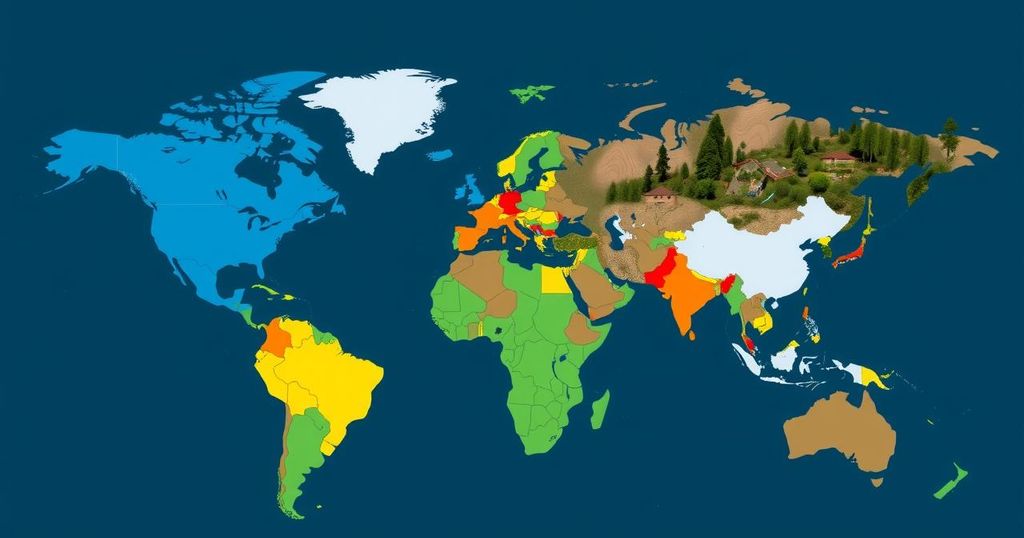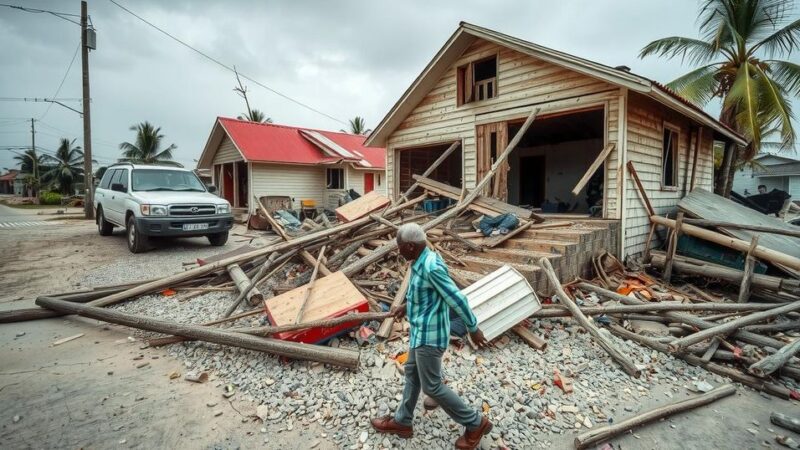Vulnerable nations are urging the International Court of Justice to hold a few high-emission countries legally accountable for the climate crisis, as Pacific islands face severe consequences from rising sea levels and disasters. The ICJ hearings reflect years of advocacy for states to address their obligations under international law, amidst growing global emissions and the urgent need for a just response to climate change impacts.
Representatives from vulnerable nations recently addressed the International Court of Justice (ICJ), arguing that a small number of countries should be held legally accountable for the ongoing climate crisis. Ralph Regenvanu, Vanuatu’s special envoy, emphasized that these nations, responsible for the majority of greenhouse gas emissions, would suffer the least from climate impacts, while Pacific island nations like Vanuatu face rising sea levels and natural disasters. This hearing reflects years of advocacy led by Vanuatu and other Pacific island states, resulting in a UN resolution calling for the ICJ’s advisory opinion on state obligations regarding climate change. Over the next weeks, the Court will receive statements from a broad spectrum of nations—including the United States and China—which have historically contributed to emissions.
Vanuatu’s Regenvanu highlighted the urgent need for significant action, noting that global emissions have increased by over 50% since 1990 despite warnings from scientists. Additionally, Ilan Kiloe, legal counsel for the Melanesian Spearhead Group, articulated that many island communities will not survive unless urgent measures are taken. He further connected the climate crisis to historical injustices of colonialism. Margaretha Wewerinke-Singh, legal counsel, asserted that states have violated international law by facilitating fossil fuel extraction and failing to adequately regulate emissions.
The ICJ is among three international courts addressing climate change, with the International Tribunal for the Law of the Sea and the Inter-American Court of Human Rights also engaged in similar processes. The ICJ’s non-binding opinions are expected to clarify state responsibilities and influence future climate litigation. Cynthia Houniuhi from Pacific Island Students Fighting Climate Change urged the judges to apply international law effectively, emphasizing that the future of vulnerable populations hinges on their actions.
The ongoing hearings, which began with an opening ceremony in The Hague featuring political speeches and artistic performances, showcase the urgent call for justice in addressing climate change’s severe impacts on vulnerable nations, particularly Pacific island states. As the ICJ weighs its advisory opinion, it cannot ignore the existential risks posed by climate change to future generations.
The ongoing climate crisis disproportionately impacts vulnerable nations, particularly small Pacific island states, while the majority of greenhouse gas emissions originate from a select group of industrialized nations. Disproportionate effects include rising sea levels and severe natural disasters that threaten the livability of these nations. Previous efforts at climate justice have highlighted the disconnect between the nations responsible for emissions and those bearing the brunt of climate change effects. The call for accountability and reparations from responsible states has gained momentum, leading to the convening of prominent international legal platforms like the ICJ to explore state obligations in combating climate change.
The current proceedings at the International Court of Justice highlight the pressing need for accountability and action from high-emission nations concerning their historical contributions to climate change. Vanuatu and other Pacific island states bear the frontline consequences of inaction, calling for legal assurances and reparations. The anticipated advisory opinion from the ICJ could significantly influence future climate negotiations and legal frameworks addressing the rights of vulnerable populations. As global emissions continue to rise, the urgency for sustainable solutions and just policies remains paramount. This landmark moment in climate litigation underscores the intersection of environmental justice and international law, aiming to secure a more equitable approach to climate change mitigation.
Original Source: www.theguardian.com







